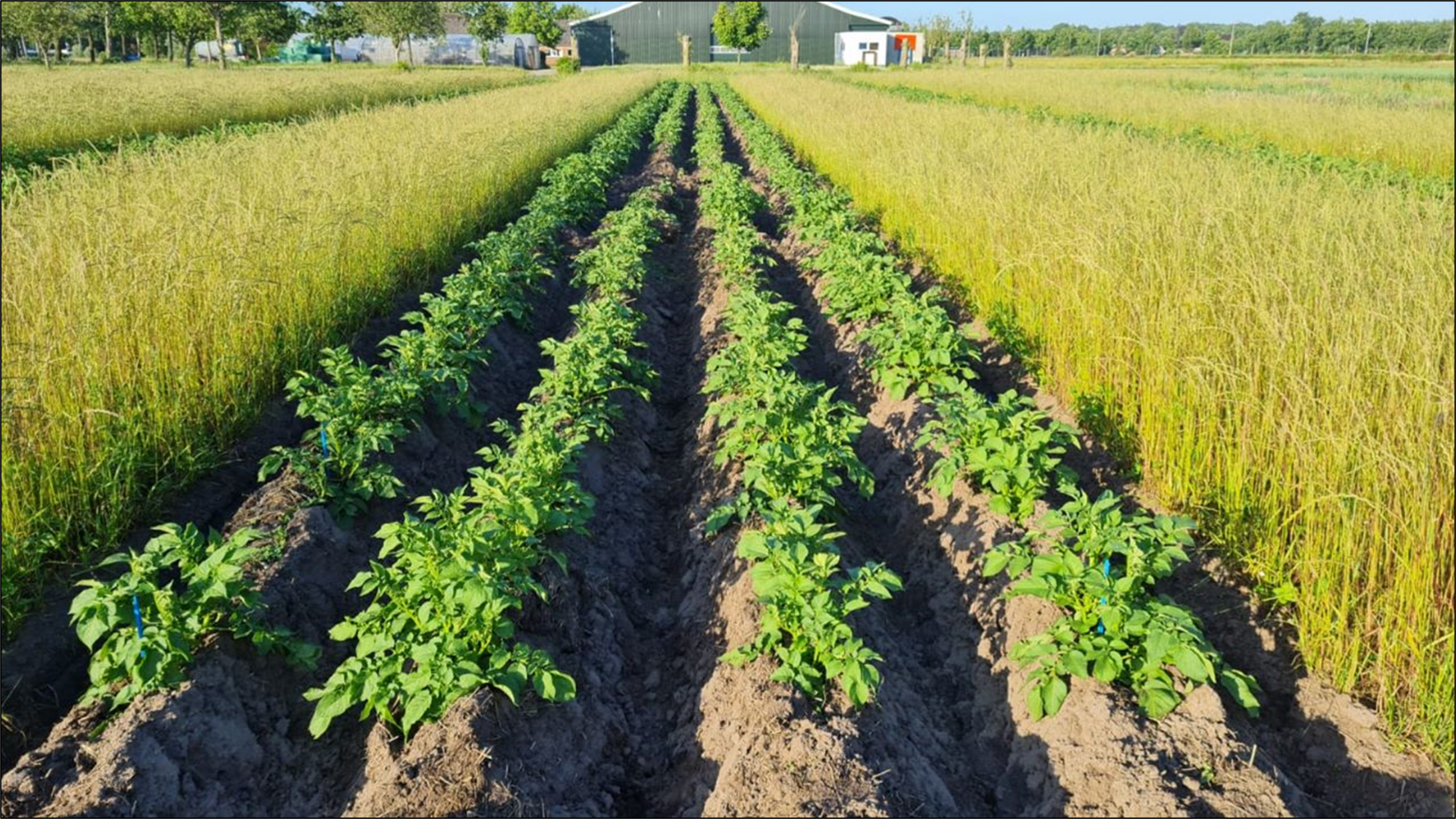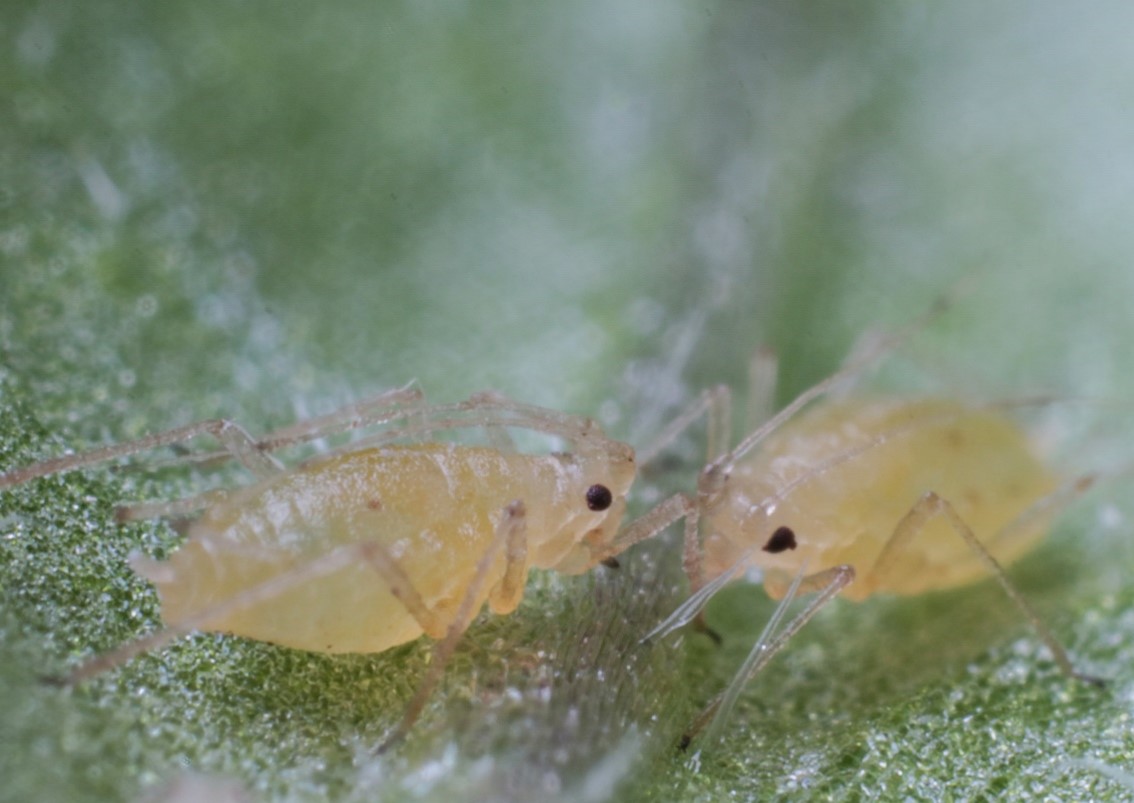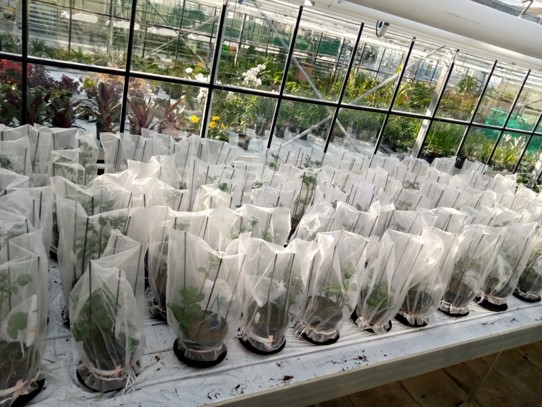Strip cropping improves plants' defences against pests through the soil
Large monocultures of one crop are still the norm in Dutch agriculture. While this can seem efficient, for example when using large tractors and spraying machines, it can lead to poor soil health and increase pest problems over time. An effective alternative is strip cropping, where different crops are planted side by side in strips. Crop diversity has been suggested to maintain soil health by increasing many soil functions and ecosystem services, such as beneficial soil microbes [1] [2], and increase biodiversity in the fields. Recently published research shows it may also strengthen plants’ natural defences against pests.
A recent study by Laura Riggi and colleagues compares growing potatoes in soils from long-term strip-cropping systems to soil that has been used for monocultures. The focus of Laura and her colleagues was on understanding how the soil from these two farming systems influences AMF (arbuscular mycorrhizal fungi) that help plants grow and defend themselves against pests.
AMF are a key player in healthy soils. These fungi form partnerships with plant roots, improving their ability to absorb water and nutrients. This relationship can lead to better crop yields and, importantly, enhance plants' defenses against pests like the green peach aphid that attacks potato plants.
“We conducted greenhouse experiments using soil from both strip-cropping and mono-cropping systems to see how they affected potato plants yield and defence against the green peach aphid,” explains Laura. “Our findings revealed that potatoes grown in strip-cropping soil had a higher presence of AMF in their roots. This suggests that crop diversity support these beneficial fungi. This is important as we also found that AMF improve the nitrogen content in the potato plants, which is vital for their growth and yield.”
The researchers also noticed that aphid populations were lower on the potatoes grown in strip-cropping soil. This reduction seems linked to changes in the plants’ natural defences, which are activated in response to pests.
In summary, the study shows promising results of strip cropping and soil health. It indicates that strip cropping can enhance beneficial soil-plant interactions via AMF symbioses, affect potato defences and reduce pest pressures. “We need more research to understand the mechanisms behind this and we need to test this outside of the greenhouse to see if the results also apply to real field situations, but our findings indicate that increasing crop diversity could affect plant defences to pest such as aphids” concludes Laura.
[1] Beillouin, D., Ben-Ari, T., Malézieux, E., Seufert, V., & Makowski, D. (2021). Positive but variable effects of crop diversification on biodiversity and ecosystem services. Global change biology, 27(19), 4697–4710. https://doi.org/10.1111/gcb.15747
[2] Guzman, A., Montes, M., Hutchins, L., DeLaCerda, G., Yang, P., Kakouridis, A., Dahlquist-Willard, R.M., Firestone, M.K., Bowles, T. & Kremen, C. (2021), Crop diversity enriches arbuscular mycorrhizal fungal communities in an intensive agricultural landscape. New Phytologist, 231: 447-459. https://doi.org/10.1111/nph.17306
Scientific publication
Title: Strip-cropping legacy enhances potato plant defence responses to aphids via soil-mediated mechanisms
Journal: Functional Ecology
Authors: Laura G. A. Riggi, Andi N. Dirham, Onikepe R. Akangbe, Ric C. H. de Vos, Thijs P. M. Fijen, Dirk F. van Apeldoorn, Liesje Mommer, Jeroen van Arkel, Roland Mumm, Sara E. Emery, Karen J. Kloth





